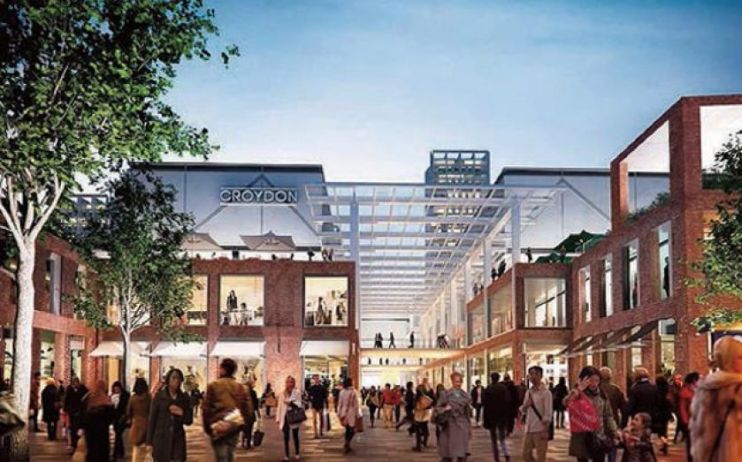Hammerson’s losses widen as retail CVAs dent rents

Retail landlord Hammerson today warned it will cut its 2020 dividend almost in half as losses mounted in 2019 after another tough year for retailers in which many renegotiated their rents.
The figures
The real estate giant sank to a £573.8m loss for its latest financial year, up from a £173.3m loss in 2018.
While occupancy rates stayed flat at 2018’s 97.2 per cent, net rental income fell 11.2 per cent to £308.5m, down from £347.5m the year before.
That meant investors suffered a 75.2p loss per share, more than triple 2018’s 22.2p loss. Hammerson stuck to a dividend of 14.8p per share and a full year dividend of 25.9p to keep them in line with 2018 returns. But it forecast a lower full-year 2020 dividend of 14p per share – almost a 50 per cent cut – as it continues to tackle its mountainous debt pile.
Over the course of the year Hammerson slashed net debt 27 per cent to £2.8bn, fuelled by disposals amounting to £975m, far above a targeted £500m. Those included the sale of seven retail parks for £400m.
Hammerson’s share price inched up 0.3 per cent to 222.8p in early trading.
Why it’s interesting
Hammerson revealed that while occupancy rates stayed flat on 2018, 234 units have been affected by restructuring since the start of 2018. Of 149 affected UK flagship stores, around 135 remain trading. But around half that number have renegotiated their rents under company voluntary arrangements (CVAs).
That has forced the landlord to slash its dividend forecast for 2020 far beyond an analyst consensus forecast of 23.37p.
AJ Bell investment director Russ Mould said retail CVAs and administrations have hit Hammerson’s income at a time when it is focused on slashing debt.
“It is selling assets as fast as possible but the retail sector’s pains are struggling to be healed,” he added.
“Hammerson is taking important steps to protect its business,” Mould added, pointing to the recent £400m of retail park disposals. “It first announced intentions to leave this sector in July 2018, illustrating how property owners cannot move fast as it takes a long time to shift real estate.
“Shareholders have suffered a disastrous few years with Hammerson’s share price having fallen by 60% since May 2018. Anyone still left owning the shares will hope that Hammerson has reached a turning point and the worst is over.
“There are some bright spots such as the scale of debt reduction and an encouraging performance from its premium outlets. However, the structural changes in the retail sector mean that Hammerson will still have to keep adapting to be match fit for the future.”
“The focus for the 2020 financial year remains reducing debt and strengthening the balance sheet while the backdrop for UK shopping centres in particular remains difficult,” broker Liberum added.
“But continued disposals, while necessary, will result in a lower income-yielding portfolio, with a potential higher capex requirement as the industry becomes more competitive to sustain structurally declining footfall.”
It comes as Hammerson’s rival, Intu, saw shares plunge after a shareholder backed out of the landlord’s £1bn emergency cash call earlier this month.
The fall wiped almost £70m off Intu’s market cap as traders saw it as a lack of confidence in the shopping centre owner.
What Hammerson said
Chief executive David Atkins said:
We have taken decisive action over the past 12 months to reduce debt and significantly reshape the portfolio. Against a challenged retail and investment backdrop, we have exceeded our 2019 disposal target, exited the retail parks sector as we said we would and reduced debt by a third. This delivered nearly £1bn of transactions in the process. With the outlook for the UK retail market remaining uncertain, we believe we should maintain our focus on reducing debt during 2020. In strengthening our balance sheet further, we will create a more resilient business and also generate significant liquidity which could, at the appropriate time, be deployed to create enhanced returns for shareholders.
The magnitude of the challenge facing UK retail is significant. However, as brands look to optimise their store estates and strike the right balance between online and physical retail, the best destinations continue to be highly relevant – this is highlighted by the rise in visitor numbers across all our regions. We remain committed to creating a portfolio of exceptional venues and, as we drive a faster pace of change in shifting our brand line-up and repurposing space, we expect to see improved results in the UK. We will build a stronger business for the future with our focus on this, alongside improved performances in France and Ireland, the extensive opportunity offered by City Quarters and the outstanding contribution from premium outlets.
Main image credit: Hammerson